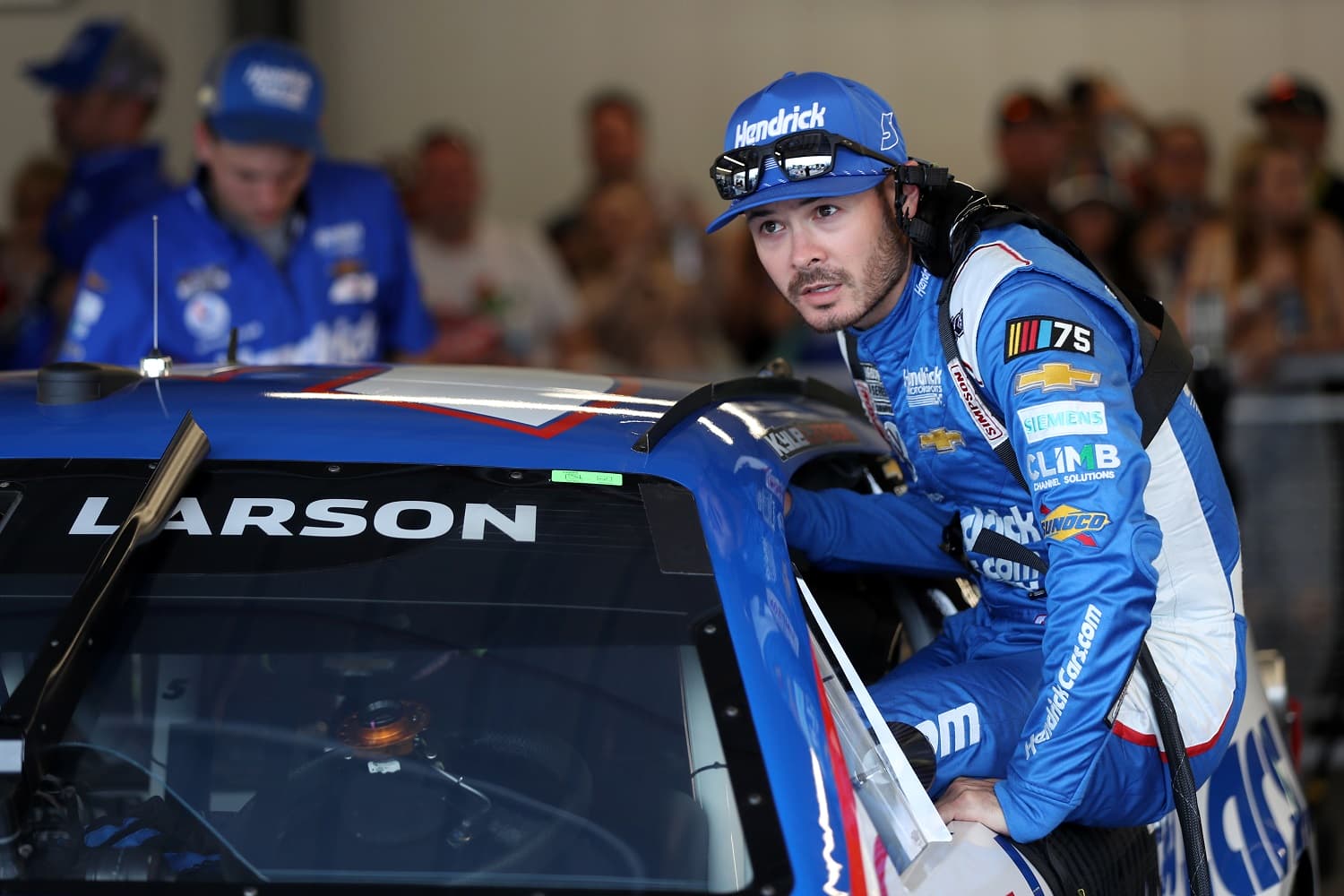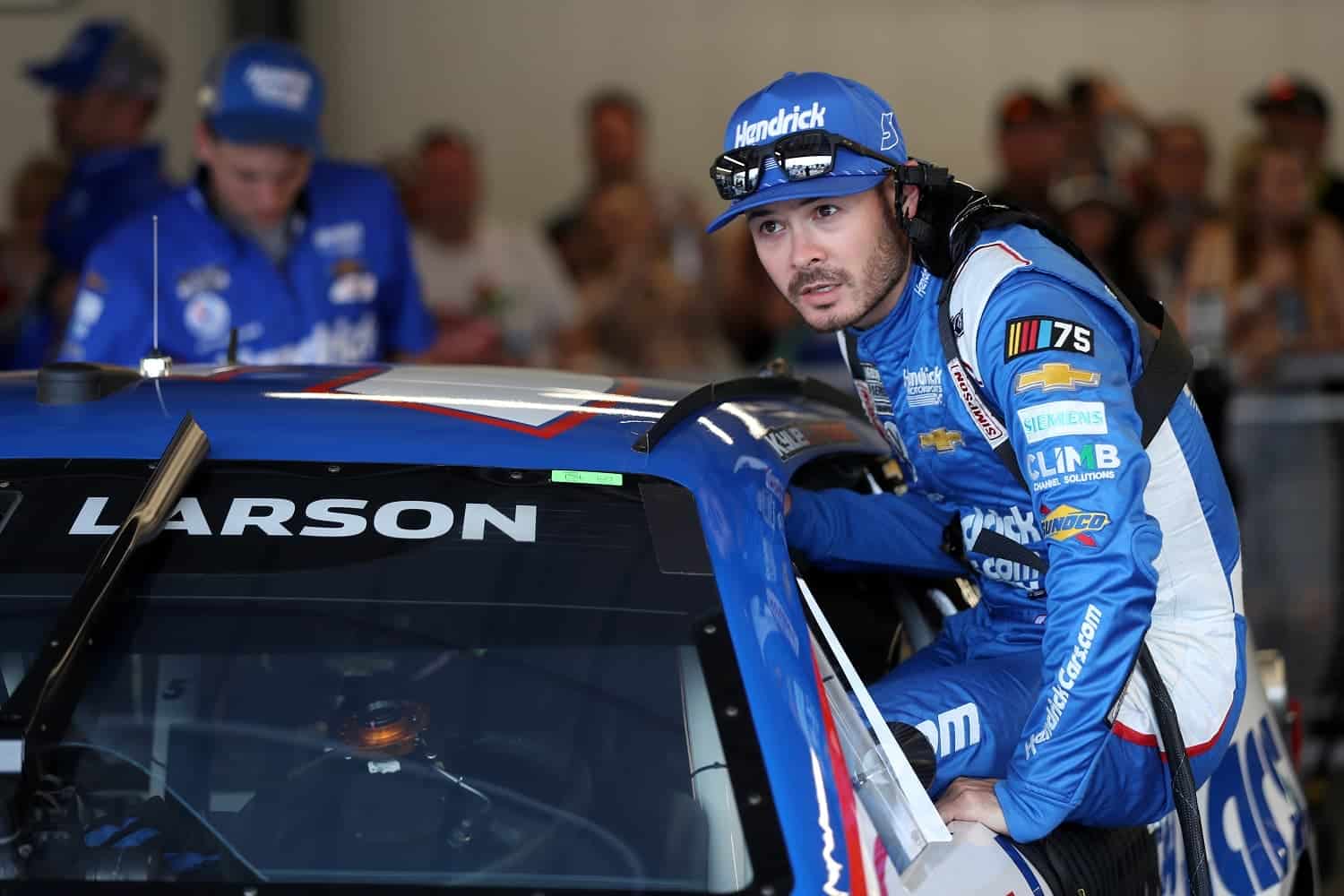NASCAR
Last Year’s Original Parts ‘Scandal’ Is Why Hendrick Motorsports May Have Nothing to Fear From Latest NASCAR Drama

It’s always big news when NASCAR comes to a garage and confiscates parts. The intrigue soars when the team in question is the behemoth Hendrick Motorsports. And it’s an even bigger deal when it involves all four of the team’s Cup Series Chevys.
But don’t get fired up just yet about the prospect of penalties, Hendrick haters. This has all the characteristics of the parts controversy that didn’t saddle Brad Keselowski with massive penalties a year ago.
NASCAR confiscated louvers from all four Hendrick Motorsports cars

Expect to learn more about hood louvers before and during Sunday’s Cup Series race at Phoenix Raceway than you ever wanted to know.
NASCAR inspectors confiscated the louvers from all four Hendrick Motorsports Chevys following Friday’s practice ahead of 2023’s fourth points race. The cars are Kyle Larson’s No. 5, Josh Berry’s No. 9, William Byron’s No. 24, and Alex Bowman’s No. 48. Following qualifying on Saturday, NASCAR also confiscated the hood louvers from Kaulig Racing’s No. 31 Chevy, driven by Justin Haley.
Louvers are vents that allow air to escape from beneath the hood. With the louvers in place, teams can no longer apply tape to the grille. They get the parts from NASCAR’s designated supplier, which means alterations aren’t permitted.
The maximum penalties for violations in the first year of the Next Gen car included 100-point penalties to the driver and the owner, four-race suspensions for the crew chief, and 10-point playoff penalties. Brad Keselowski was the first to take a major hit for a violation early in the season.
NASCAR will take the louvers to its R&D center in Concord, North Carolina, for a detailed inspection, meaning there will be no decision about possible penalties before mid-week.
The Hendrick Motorsports cars did better minus the confiscated louvers
NASCAR officials noticed an issue with the Hendrick Motorsports cars’ louvers during inspection on Friday but allowed them to practice before confiscating the parts. Kyle Larson logged the fastest time, with Alex Bowman third, William Byron 20th, and Josh Berry 23rd.
With replacement louvers utilized in qualifying on Saturday, Larson captured the pole, Byron placed third, Berry was 17th, and Bowman brought up the rear in 18th. In total, then, the HMS cars did better without the parts that had NASCAR concerned.
Fox Sports reporter Bob Pockrass said Chad Knaus, the team’s vice president of competition, declined to comment pending more extensive conversations with NASCAR. However, Pockrass said his understanding from talking to teams is that some louvers delivered by the NASCAR supplier didn’t meet specifications. Teams were told not to touch them and to await a new shipment.
NASCAR inspectors apparently noticed the louvers weren’t a smooth fit on the HMS Chevys and then found the same issue on Justin Haley’s Chevy.
There’s a precedent for NASCAR to do nothing
The inspection of confiscated louvers by NASCAR at its R&D center presumably will come down to whether the parts were altered after arrival at the team shops. That’s what triggered the penalties against Brad Keselowski and RFK Racing last season.
However, that was not Keselowski’s first run-in with NASCAR in 2022. At the season-opening Daytona 500, NASCAR confiscated wheels from RFK Racing and Team Penske cars after spotting evidence of altered drive pin holes.
Both teams made the case that they made safety-related modifications that were permitted under the new rules developed for the Next Gen car. NASCAR accepted the explanation and did not penalize either team.
While louvers wouldn’t constitute a safety issue, any indication that they weren’t manufactured to spec would work in favor of Hendrick Motorsports and Kaulig Racing. The fact that two teams, both running Chevys in the Cup Series, had the same part confiscated strengthens the argument that there may have been a quality control issue on the part of the vendor.
Got a question or observation about racing? Sportscasting’s John Moriello does a mailbag column each Friday. Write to him at [email protected].











